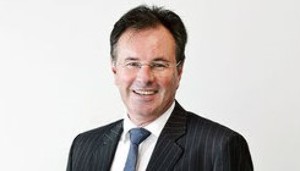nib reports local profit lift as group fortunes fall
Health insurer nib says growth in number of policyholders helped lift its profit in the six months to December 2019.
Monday, February 24th 2020, 11:24AM

It has reported an underlying operating profit of $11.7 million.
Chief executive Rob Hennin said the result was driven by 5.7% growth in policyholder numbers.
“We’re supporting the better health of more people than ever with 225,536 people currently covered compared to just under 170,000 when we first started in late 2012,” Hennin said.
“This is a great reflection of the growing value we’ve been able to deliver to our members to ensure we’re not only providing financial protection and security but also helping them to navigate the healthcare system and make better healthcare decisions,” he said.
The group's underlying revenue lifted 6.4% to A$1.3 billion.
Higher claims inflation across nib’s insurance businesses as well as timing in the receipt and payment of claims impacted nib’s “unpaid claims” reserves and resulted in a group underlying profit of A$83.2 million, a 27.2% decline compared to the first half of 2019.
But New Zealand was singled out as a strong performer.
Hennin said cost containment and reducing the amount members paid when they require treatment or hospitalisation remained a key focus.
“Our First Choice network which guarantees zero out-of-pockets for our members remains a key tool in managing service cost inflation with approximately 95% of claims volume now through a First Choice provider,” Hennin said.
“Not only is the network removing unexpected costs for our members but it’s also helping us to keep premiums affordable, with more than NZ$1.6 million saved in claims costs during the period.”
New Zealand chairman, Tony Ryall said the business continued to strive to be at the vanguard of delivering better health for its members. “Our partnership with Ngāti Whātua Ōrākei is a great example of how we are transforming to become more about people’s better health rather than just responding to sickness,” Ryall said.
“Working together we’re aiming to create better health interventions, improve health outcomes and tackle existing barriers that Māori experience when accessing healthcare through the public health system. Applying learnings from this experience we’re now looking to expand this programme to other communities and populations both in New Zealand and Australia.”
| « Woman 'forgotten' during advice process | Mixed reviews from advisers on FMA regulation » |
Special Offers
Comments from our readers
No comments yet
Sign In to add your comment
| Printable version | Email to a friend |


